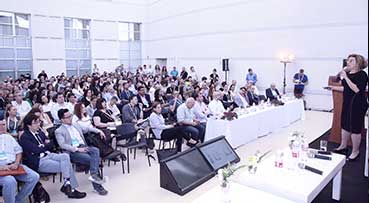If you’re a manager in an organization that prioritizes returning to the office over focusing on results and growth, irrespective of time and place, here’s a piece of career advice – consider leaving. It’s not just about your preference for flexibility or hybrid work; it’s about safeguarding your career progression. Because as a manager in an organization bent on reverting to pre-pandemic norms you’re not building your skills and capabilities to manage the organizations of the future.
Organizations focusing on Return To Office (RTO), are essentially prioritizing the familiar and comfortable, which is a natural though limiting response to change. By focusing on the physical presence of their teams and the belief that it translates into productivity, these organizations are clinging to the old ways. And if you’re a manager working in one of those organizations, this focus forces you back into a pre-pandemic mindset, prioritizing conformity and familiarity over innovation and adaptability.
Which means you are still practicing being a manager for organizations of the past and not the future.
In today’s rapidly changing work landscape, the contrast between hybrid and traditional workplaces is stark. This evolution isn’t just about our physical work locations but how managers can adapt, evolve, and flourish within these emerging frameworks. The diverse dynamics of remote, hybrid, and in-person teams demand that managers develop new competencies for managing work and people across time, place and cultures. At this pivotal moment, it’s essential for managers to grasp the evolving trajectories of work:
The What of Work is the Outcome: Management in the Future of Work is Achievement, Not Oversight. It’s about what you and your team achieve, the impact of your efforts, rather than the number of people you oversee or the specifics of their work settings and schedules. This shift means that management now revolves around setting explicit objectives, fostering an environment of innovation, and leveraging data to steer strategic decisions, ensuring that teams are united and propelled by clear, measurable goals. Your priority should be to excel in defining and communicating what success entails, how it’s quantified, and guiding your team towards it with an outcome-focused approach. Then, adopt and refine your proficiency with data-driven tools and techniques for enhanced efficiency and insight.
The Who are no longer “Yours”: The Future of Work is about managing for Co-creation. In an era where effective collaboration transcends time and space, the concept of “your” people shifts to having the right individuals, at the right time, equipped with the necessary tools to deliver results. This evolution allows for a workforce that is not only increasingly global and diverse but also versatile in how it collaborates, utilizing various work modes and contractual arrangements. Embracing this shift in perspective enables you to reimagine recruitment, engagement, empowerment, interaction, motivation, and evaluation processes for managing a broad spectrum of talents and backgrounds. A robust digital presence becomes essential for inspiring teams and broadening your network globally.
The Where of Work is Everywhere: In the Future, Work is not where we Go, it’s what we Do. The workplace now spans from traditional offices to home offices, co-working spaces, on the move, and within the vast expanse of the digital realm. This means managers must adeptly navigate the nuances of remote, hybrid, and in-person environments. Embracing a continually changing array of digital tools for human-to-human and human-to-AI interactions becomes critical, as does maintaining strong team cohesion and morale and focusing on outcomes. Effective engagement strategies are essential to overcome the challenges of physical separation, requiring managers to excel in communication, recognize digital cues, foster trust, and demonstrate digital empathy.
The How of Work is Agile and Adaptive: Management in the Future of Work Embraces Change. As a manager, your success hinges on assembling the right team for the task. This means you need to master the art of managing within networked, agile, flexible, and evolving work structures. Adapting your management approach to fit the individual and the situation is crucial, moving away from rigid command-and-control to more fluid leadership styles. This shift is vital to accommodate the varied dynamics of people and teams and to stay agile in the face of change, staying comfortable with changes to the plan and moving forward in the face of uncertainty. Leveraging the latest digital tools is key to sustaining creative momentum and overcoming barriers in a virtual setting.
The When of Work shouldn’t matter: The Future of Work Blends with Life. Work has become a seamless part of our lives, not something separate. The challenge for managers is to release the impulse to control when tasks are completed and instead concentrate on the outcomes. Traditional management was built on direct, often in-person interactions—office meetings, one-on-ones. Now, it’s time to shed some of those old habits in favor of asynchronous work patterns that allow individuals to perform tasks at the most convenient times for both them and the project at hand. It’s about prioritizing significant interactions over strict schedules, focusing on what truly requires collaboration and what does not, thereby shifting the emphasis from being present to being productive.
The Why of Work is the not-so-secret Ingredient: The Future of Work Values Purpose. The best people no longer work because they have to, or because you tell them to or measure them on it. They work because they want to, because in working for and with you they are also achieving what matters to them in life. For managers, the imperative shifts to discovering what drives each individual and then aligning work assignments, attention, and resources to support them in realizing their personal goals alongside organizational objectives. Tailoring management approaches to meet the unique needs and aspirations of each team member is crucial for fostering a sense of belonging and dedication to a common purpose.
As we navigate through the evolving dynamics of the workplace, it’s clear that the landscape of management is undergoing a profound transformation. Managers who retreat to pre-pandemic norms are setting themselves up for failure. Managers in organizations currently grappling with hybrid and remote work are on the frontier of mastering new operational methodologies. The journey is hard, but through it they are evolving from traditional oversight roles to becoming architects of an environment where innovation, collaboration, and fulfillment thrive.
Because the Future of Work demands not just to adapt but to lead with vision, understanding that the true measure of success is in building teams that are as resilient, dynamic, and diverse as the challenges and opportunities that lie ahead.

![large-AX1A2125-2[1]](https://niritcohen.com/wp-content/uploads/elementor/thumbs/large-AX1A2125-21-pnzedcs72atx5aeurqytqdiihxixlq02re9mlz805s.jpg)






